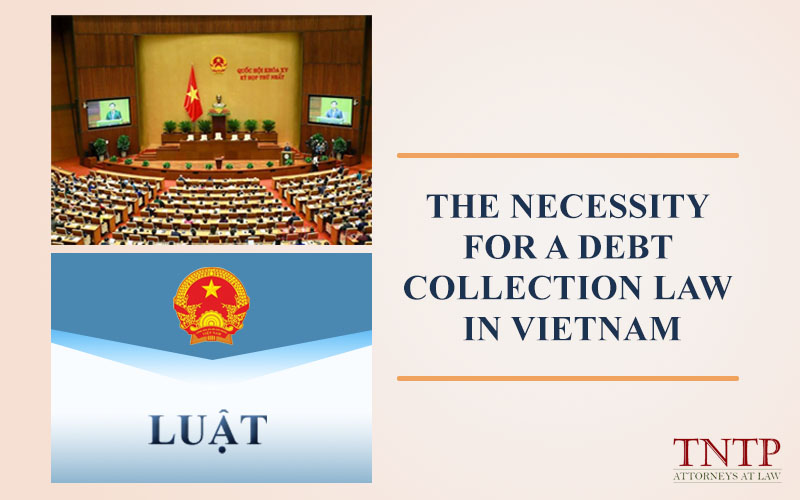In the business activities of enterprises, there is always the possibility of incurring debt – an inevitable consequence when a party borrows money or a value of the property and fails to pay on time or in full quantity to the creditor. At that time, creditors often use debt collection services to recover the debt from the debtor. However, at present, legal debt collection activities in Vietnam are not effective because of limitations in the provisions of the law. In this article, we will give our views on the necessity for a Debt Collection Law in Vietnam.
1. Practice of debt collection activities in Vietnam
Before the Investment Law 2020 took effect, the debt collection services were a conditional business line in Vietnam. However, many debt collection companies applied debt collection methods in the “gangsters style” to intimidate the mental and threaten to force the debtor to pay the creditor.
After the Investment Law 2020 took effect, putting the “Debt collection service business” on the list of prohibited investment and business activities, many companies performing debt collection activities that were established before had to be terminated. Up to the present time, only law firms can conduct lawful debt collection activities with more peaceful debt collection methods such as Negotiation and filing lawsuits in court or denouncing the competent police investigation agency if the debtor has conditions but does not pay, or it is determined that the debtor shows signs of violating the Criminal law.
Legally, it is reasonable to ban the business line of debt collection services in the form of “gangsters style” because it may ensure social order and contribute to a more civilized society. However, we cannot deny the effectiveness of these forms of intimidation on the debtor when they directly affect the psychological, even physical, and cause the debtor to be under pressure, and fear, and make debt collection become fast and efficient. Creditors are often not attracted to peaceful and law-abiding options such as negotiation or filing lawsuits in Court because these options often have complicated and time-consuming. Also, they do not bring economic value to creditors.
2. The Necessity for a Debt Collection Law in Vietnam
In some countries around the world, debt collection is still allowed by law, but all conditions must be met. For example, the Fair Debt Collection Act – FDCPA of the United States of America.
The essence of the FDCPA is to make regulations to bind the actions of third parties who perform debt collection services on behalf of creditors to ensure that they do not infringe on the civil rights and other rights of the Debtors as protected by law. Specific regulations include:
– Conditions when making a phone call
- Information about debt collectors and creditors must be disclosed before making a request;
- Phone calls are only allowed between 8 am and 9 pm;
- Do not use offensive or threatening language to the debtor.
– Regulations on providing information to debt collectors
- Before requesting the debtor to pay, the debt collector must notify the full name of the debt collector and the debt collection organization in operation;
- Amount to be paid by the debtor;
- Full name, and specific information of the creditor.
– Prohibited regulations
- Prohibit the use of abusive, annoying forms or behaviors to the debtor;
- Prohibit disclosure of information about debtors’ debts to parties other than creditors and debtors.
The above experiences of FDCPA can be fully applied in Vietnam because when debt collection activities are controlled by specific and clear regulations, debt collection activities will become civilized and protect the interests of the debtor and maintain social order and stability. At the same time, once debt collection becomes effective, it will clear the stagnant cash flow caused by bad debts and will become a driving force for the development of the economy of Vietnam, especially in the current situation when Vietnam is recovering production and business activities after Covid-19, and many debts have arisen in society due to the impact of the pandemic.
The above is the knowledge sharing of TNTP about the need for a Debt Collection Law in Vietnam. We do hope our article will be useful to you and your work.
Best regards,
You may need the introduction to the fair debt collection practices act – FDCPA
Join Fanpage Dispute Settlement and Debt Collection to have more useful legal knowledge.
TNTP & Associates International Law Firm
6th Floor, No. 200 Nguyen Luong Bang Street, Quang Trung Ward, Dong Da District, Hanoi
Lawer Nguyen Thanh Ha
Email: ha.nguyen@tntplaw.com








